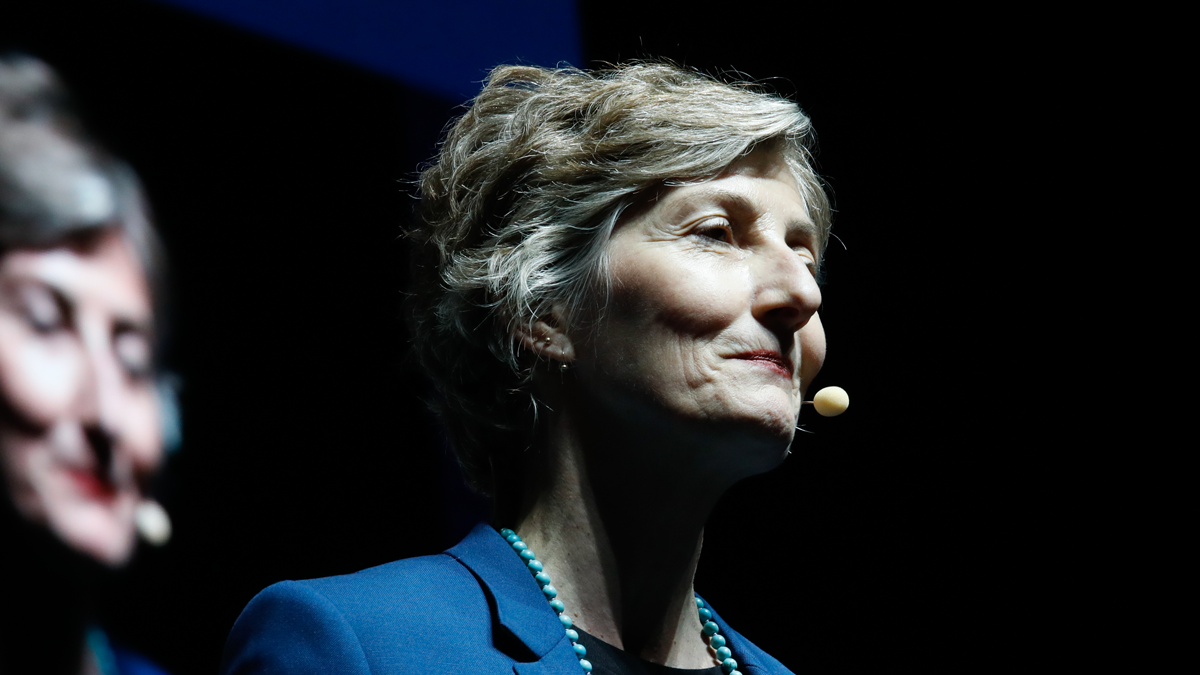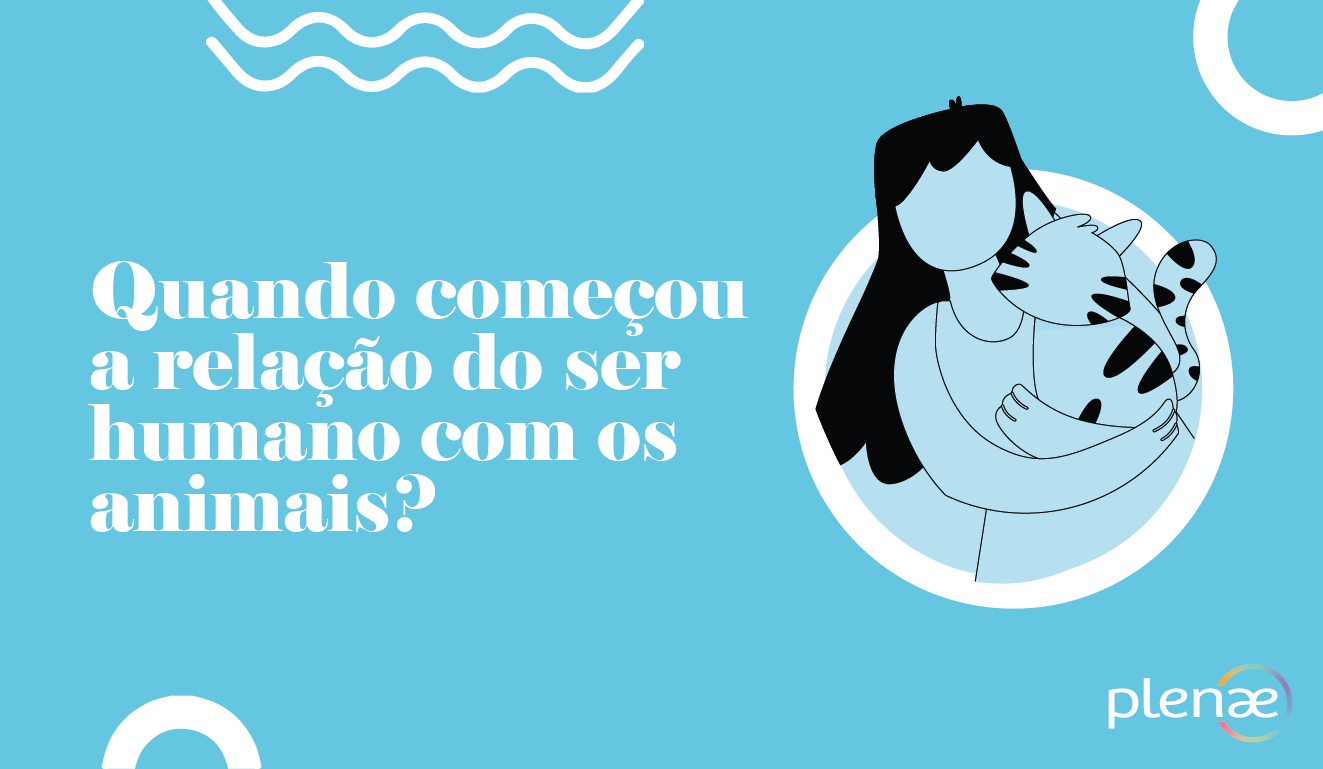Para Inspirar
A nutricionista Jeanette Bronée entrou no palco e disparou: “O que é algo que sempre queremos mais? O que todos acham que não temos o suficiente?”.


Para Inspirar
A relação entre cachorro e humanos é mais antiga do que se imagina e traz inúmeros benefícios. Entenda mais!


No quarto episódio da décima quinta temporada do Podcast Plenae, conhecemos a história do Alexandre Rossi, especialista em comportamento animal e entusiasta do tema desde a infância. Em seu relato, conhecemos um pouco mais sobre o despertar desse interesse, que nos lembra como as crianças dão indícios importantes sobre suas paixões em detalhes que podem nos passar despercebidos.
Ao longo de sua vida, Alexandre dedicou-se a estudar não só o lado técnico da criação dos animais, mas também o lado psicológico. Foi com esse olhar sensível e apurado que ele entendeu profundamente o que os animais podem estar pensando e sentindo e, a partir disso, como educá-los com base no que você espera.
Toda essa trajetória nos lembrou os cachorros, que já foram assunto por aqui. Dedicamos uma crônica inteira para o melhor amigo do homem, além de te contar o que é preciso ter e saber antes de adotar um e os benefícios dessa parceria para sua saúde - este último conteúdo inspirado no episódio de Rafael Mantesso, também participante do Podcast Plenae, mas da quarta temporada. Assim como ele e como Rossi, ainda conhecemos o relato de amor entre humano e bicho com Eduardo Foz, participante da sétima temporada.
Mas, afinal, quando nasceu essa relação? E como ela foi construída ao longo do tempo? É isso que vamos descobrir hoje!
 O bicho e o homem
O bicho e o homemA domesticação de animais começou há milhares de anos, durante o período neolítico, quando os seres humanos começaram a desenvolver práticas agrícolas e se estabelecer em comunidades permanentes, como conta o livro “Sapiens: uma breve história da humanidade” de Yuval Noah Harari. Domesticá-los era importante para que nós, humanos, pudéssemos controlar fontes de alimento, transporte e trabalho.
Quando pensamos em animais domesticados há muito tempo, o cavalo pode ser o primeiro que surge em nossa mente, já que ele serviu de meio de transporte por muitos anos. Mas muito provavelmente os cães foram os primeiros. Porém, não há um consenso sobre a “data” específica dessa transição. A maioria dos estudos apontam para 12 mil anos atrás como o começo desse processo.
Outros variam entre 15 mil a 30 mil anos atrás. Para se ter uma ideia, cientistas encontraram o crânio de um cão domesticado 33.000 anos atrás nas montanhas Altai, na Sibéria, que apresenta algumas das características de cães modernos, como contou esse artigo da revista Veja. Isso indicaria um estágio muito preliminar de domesticação – e está longe de determinar se, naquele período, a lealdade do homem era recíproca, como aponta o texto.
A teoria mais aceita de fato aponta para uma aproximação mais intensa há cerca de 11.000 anos, junto com a agricultura, como comentamos anteriormente. Ao aprender a cultivar a terra, o homem do Neolítico aprendeu também a criar animais como reserva alimentar, como explica esse artigo da Revista Superinteressante.
Os lobos, que são constantemente apontados como os primeiros ancestrais dos cachorros - mas não há também um consenso entre os pesquisadores sobre isso -, foram atraídos possivelmente pelo lixo e restos de comida deixados pelos caçadores.
 Com o tempo, eles foram gradualmente selecionados por características desejáveis, como comportamento amigável e obediência, o que nos levou à criação de uma ampla variedade de raças caninas. Cada uma possuía características específicas para tarefas específicas: uns caçavam, outros protegiam e outros só faziam companhia.
Com o tempo, eles foram gradualmente selecionados por características desejáveis, como comportamento amigável e obediência, o que nos levou à criação de uma ampla variedade de raças caninas. Cada uma possuía características específicas para tarefas específicas: uns caçavam, outros protegiam e outros só faziam companhia.
A relação era vantajosa para ambas as partes: os lobos ganharam ao conviver com o homem proteção contra predadores, comida sem precisar disputá-la com outros carnívoros e até o abrigo aconchegante do calor das fogueiras. Com o passar do tempo, esses animais começaram a ser verdadeiramente venerados por sociedades antigas - e até pela nossa moderna, convenhamos. Se a mente humana acreditava estar inferiorizando outra espécie, pois bem, estavam muito enganados.
Os benefícios para nós também foram visíveis: os animais domesticados se tornaram sustento e força para guarda dos assentamentos, além de trabalho e transporte. Eles eram capazes de ver e ouvir o que não podíamos, e antecipar-se para a defesa. Isso porque não só os cães foram domesticados: depois deles vieram ovelhas, cabras, gatos, porcos, os cavalos que mencionamos anteriormente e muitos outros. Para se ter uma ideia, os gatos - que foram domesticados bem depois, há cerca de 9.000 anos - ajudavam a controlar pragas em áreas agrícolas.
 O que veio depois
O que veio depoisMais do que somente para alguma utilidade, essa aproximação entre espécies também era permeada de afeto desde os tempos mais remotos. Um estudo publicado no periódico Journal of Archaeological Science mostrou que uma família do período Paleolítico fez o possível para ajudar um cachorro a sobreviver, como contou esse artigo da Revista Galileu. Para se ter uma ideia, os restos do animal foram enterrados junto com essa família.
Além disso, essa domesticação toda, é claro, também trouxe malefícios. As sociedades se tornaram mais sedentárias e desenvolveram culturas agrícolas, o que teve um impacto significativo não só na forma como as civilizações se desenvolveram ao longo da história, mas até mesmo em sua alimentação. Se por um lado tínhamos mais acesso a alimentos sem empenhar tão grandes esforços, por outro, nossa dieta ia ficando empobrecida, como continua contando Yuval.
Também começamos a nos reproduzir em alta quantidade e começamos a superlotar o mundo, processo que traz, dentre vários problemas, o aumento das pestes e das doenças, que agora eram mais facilmente transportadas de um para o outro, visto que passamos a ficar fixos e perto um do outro.
Apesar do número expressivo de pessoas que possuem um pet - no Brasil, já existem mais de 132 milhões de pets, de acordo com o IBGE -, os maus tratos ainda são uma realidade e para isso, há leis que protegem esses animais.
Em agosto de 2019, o Senado brasileiro aprovou o Projeto de Lei n° 27/2018 que determina que os animais não humanos possuem natureza jurídica sui generis e são sujeitos de direitos despersonificados, devendo gozar e obter tutela jurisdicional em caso de violação, vedado o seu tratamento como coisa e ganhando mais uma defesa jurídica em caso de maus-tratos, como conta esse artigo.
 Com a aprovação dessa lei, o Brasil se junta ao seleto grupo de sete países que vêm mudando sua legislação para reconhecer os direitos dos animais, como continua o artigo. “Alemanha, Áustria, Suíça, França, Portugal, Espanha e Nova Zelândia já alteraram suas leis buscando reconhecer os animais como seres vivos dotados de sensibilidade e sujeitos de direito e não como meros ‘objetos’ ou ‘propriedade’”.
Com a aprovação dessa lei, o Brasil se junta ao seleto grupo de sete países que vêm mudando sua legislação para reconhecer os direitos dos animais, como continua o artigo. “Alemanha, Áustria, Suíça, França, Portugal, Espanha e Nova Zelândia já alteraram suas leis buscando reconhecer os animais como seres vivos dotados de sensibilidade e sujeitos de direito e não como meros ‘objetos’ ou ‘propriedade’”.
Por fim, a visão que Alexandre Rossi tinha sobre a psicologia dos animais se provou uma área promissora e que ganha cada vez mais espaço. Para além do adestramento, os pets agora contam com homeopatia e psicologia canina, por exemplo. Isso tudo corrobora com a visão de que a natureza está mais próxima de nós do que imaginamos e que é preciso abraçá-la todos os dias um pouco.
Conteúdos
Vale o mergulho Crônicas Plenae Começe Hoje Plenae Indica Entrevistas Parcerias Drops Aprova EventosGrau Plenae
Para empresas